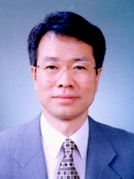people
Kyu-Young Whang, a Distinguished Professor at KAIST’s Computer Science Department, has developed The VLDB Journal into one of the world’s best journals on database technology.
Professor Whang, Editor-in-Chief of The VLDB Journal, is credited for the journal’s remarkable success evidenced by the rise of the publication’s Science Citation Index (SCI) impact factor from 3.818 to 6.8 in the period of one year. This placed the VLDB in the first place amongst 99 information systems journals and 44 hardware and architecture-related journals registered with the SCI. With only the exception of the Survey Journal, this makes The VLDB Journal the best in computer science.
The VLDB Journal is a quarterly journal published on behalf of the VLDB Endowment. The journal, launched in 1992, is dedicated to the publication of scholarly contributions to the advancement of information system architectures, the impact of technological advancements on information systems, and the development of novel database applications.
The VLDB Journal’s closest competitors in database technology, IEEE Transactions on Knowledge and Data Engineering and ACM Transactions on Database Systems, received an impact factor of 2.236 and 1.613 respectively. Comparatively, Professor Whang’s journal retains an impact factor nearly 3 to 4 times greater.
During Professor Whang’s six-year term as Editor-in-Chief, he has actively pursued the use of innovative ideas, strengthened the board of editors, standardized the length of review time, and made the journal much more accessible through the Internet. Furthermore, he drastically reduced publication time and sought a policy that focused more on the journal’s readers, which led to The VLDB Journal’s SCI impact factor rising from 1.149 (2002) to 6.8 (2008).
As one of The VLDB Journal’s founding members, Professor Whang has worked for the advancement of his journal tirelessly for 19 years with many accomplishments in database technology, including physical database design, determining the quality of a database, and the creation of a database management system. As a result, Professor Whang became the first IEEE fellow concerning domestic computer science. He is also a trustee of The VLDB Endowment, a fellow of the Korean Academy of Science and Technology, and of course, a Distinguished Professor at KAIST.

-
people Top 10 Emerging Technologies by World Economic Forum
The World Economic Forum’s Meta-Council on Emerging Technologies announced its annual list of breakthrough technologies, the “Top 10 Emerging Technologies of 2016,” on June 23, 2016. The Meta-Council chose the top ten technologies based on the technologies’ potential to improve lives, transform industries, and safeguard the planet. The research field of systems metabolic engineering, founded by Distinguished Professor Sang Yup Lee of the Chemical and Biomolecular Engineer
2016-06-27 -
people Two Undergraduate KAIST Students Publish a Book on Health Management
Joonho Suh of the Aerospace Engineering Department and Jiho Suh of the Mechanical Engineering Department are both brothers and undergraduates at KAIST. The Suh brothers, who are three years apart, have recently published a self-help book in English on staying healthy entitled “A Scientific Approach to Building Muscle: Mass Effect.” The book introduces techniques to build muscles, adapting them from an engineering concept called "Active Torque Control (ACT)," the management o
2015-10-26 -
people Seven Graduates of KAIST S+ Convergence AMP Publish a Book, “The First Penguinâ€
Seven graduates of KAIST’s S+ Convergence Advanced Management Program (KAMP) have published a book containing their business success stories, The First Penguin, hoping that in telling their story, they will inspire readers who want to become entrepreneurs. The book is available only in Korean. The title of the book refers to a penguin that enters the water first when other penguins hesitate to dive into the ocean, symbolizing the need to make the first move. The book reflects the experien
2015-05-26 -
people Professor Shim Featured with His Drone System in IEEE Spectrum
The IEEE Spectrum, a technology and science magazine published by the Institute of Electrical and Electronics Engineers (IEEE), featured an article of KAIST’s autonomous unmanned aerial vehicles (UAVs) entitled “South Korea Prepares for Drone vs. Drone Combat,” posted on April 1, 2015. The article introduces the anti-drone defense system being developed by Professor “David” Hyunchul Shim of the Department of Aerospace Engineering at KAIST. With the goal of developi
2015-04-02 -
people Interactions Features KAIST's Human-Computer Interaction Lab
Interactions, a bi-monthly magazine published by the Association for Computing Machinery (ACM), the largest educational and scientific computing society in the world, featured an article introducing Human-Computer Interaction (HCI) Lab at KAIST in the March/April 2015 issue (http://interactions.acm.org/archive/toc/march-april-2015). Established in 2002, the HCI Lab (http://hcil.kaist.ac.kr/) is run by Professor Geehyuk Lee of the Computer Science Department at KAIST. The lab conducts various
2015-03-02